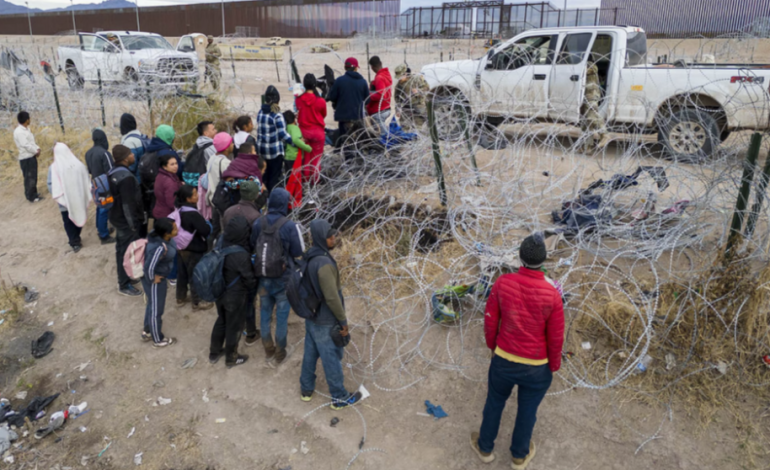The Wyoming Senate Judiciary Committee is set to consider a bill that would require police officers and other officials to enforce immigration laws traditionally handled by the federal government, Gillette News Record reports.
The legislation, introduced by Sen. Cheri Steinmetz, R-Torrington, proposes far-reaching measures that mandate police to verify the legal status of anyone they stop and detain those unable to provide documentation.
If passed, the bill would:
- Require police officers to ask for proof of lawful presence in the US during traffic stops.
- Mandate the detention of individuals who cannot verify their legal status until federal authorities take custody.
- Penalize employers up to $16,000 for knowingly hiring undocumented immigrants.
- Prohibit the transportation or sheltering of undocumented individuals to conceal them from authorities.
- Require public officials to verify the immigration status of anyone over the age of 14 applying for public benefits, with some exceptions for emergency and medical services.
- Direct the Wyoming Attorney General to sign agreements with federal authorities for immigration enforcement and require county sheriffs to do the same.
Steinmetz’s bill makes no distinction between immigrants charged with crimes and those whose only infraction is being in the country without proper documentation.
The bill has sparked significant debate over its implications for local government operations and civil liberties. Law enforcement officials, including sheriffs, have voiced concerns about the administrative and financial burdens associated with federal agreements for immigration enforcement.
Allen Thompson, executive director of the Wyoming Association of Sheriffs and Chiefs of Police, noted that such agreements could be costly and resource-intensive.
“Most importantly, they incur manpower that many agencies just cannot afford,” he said.
The Wyoming branch of the American Civil Liberties Union (ACLU) also warned sheriffs against forming agreements with Immigration and Customs Enforcement (ICE), citing potential civil rights violations and a breakdown in community trust.
Critics of Steinmetz’s bill argue that it surpasses even the stringent enforcement policies of the Trump administration, which primarily targeted undocumented immigrants with criminal records. Legal experts have pointed to concerns that enforcement policies of this nature can lead to fear and a lack of cooperation between immigrant communities and law enforcement.
Steinmetz, who declined an interview with WyoFile, described her bill as a “vehicle” for discussion and amendments, initially suggesting that it would align with Trump-era policies.
The bill has drawn comparisons to legislation in Florida, which a federal judge ruled unconstitutional pending further litigation. Opponents of that law argued it created significant barriers for residents to conduct everyday activities like driving children to appointments or attending religious events.










The latest news in your social feeds
Subscribe to our social media platforms to stay tuned